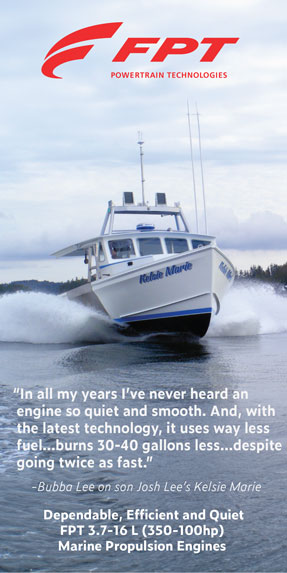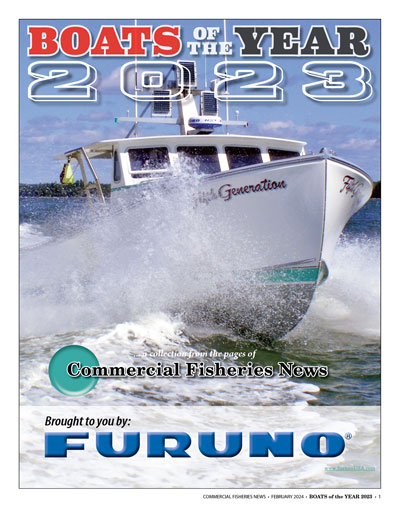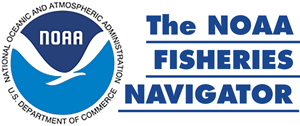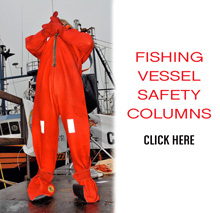 As recently reported by Commercial Fisheries News, several fisheries representatives were invited to visit the Thanet offshore wind facility in England to speak with regulators and fishermen about issues regarding offshore wind development (see CFN May 2013). The Bureau of Ocean Energy Management (BOEM) applauds such opportunities for engagement, as they provide valuable insight to the offshore wind industry, fishing communities, and policy makers.
As recently reported by Commercial Fisheries News, several fisheries representatives were invited to visit the Thanet offshore wind facility in England to speak with regulators and fishermen about issues regarding offshore wind development (see CFN May 2013). The Bureau of Ocean Energy Management (BOEM) applauds such opportunities for engagement, as they provide valuable insight to the offshore wind industry, fishing communities, and policy makers.
As a federal regulator, BOEM understands firsthand the importance of stakeholder input and carefully considers concerns raised by fishermen and other ocean users when evaluating the siting and impacts of offshore wind development. Their input makes a difference, as shown by BOEM’s recent work to promote responsible wind energy development in the North Atlantic.
BOEM recently announced the lease terms and July 31 auction date for a “Wind Energy Area” (WEA) off Rhode Island and Massachusetts. This will be the first competitive lease sale for renewable energy on the Outer Continental Shelf.
The bureau, which only issues leases in federal waters between three and 200 miles from shore, already has issued noncompetitive offshore renewable energy leases to Cape Wind Associates LLC for a facility in Nantucket Sound and to Bluewater Wind Delaware LLC for an area offshore of Delaware.
BOEM has announced lease terms and a July 23 auction date for WEAs off of Virginia and will be announcing that information for Massachusetts, Maryland, and New Jersey WEAs beginning later this year going into 2014. Maps for all of these areas are available on our website at <www.boem.gov>.
The upcoming Rhode Island/Massachusetts auction follows years of meetings with the Massachusetts and Rhode Island Renewable Energy Intergovernmental Task Forces, the states’ respective fishery advisory groups, and briefings to the New England Fishery Management Council.
In November 2012, the New England council named a representative to intergovernmental task forces in New England. These meetings have resulted in new BOEM environmental studies and changes to the WEAs off Rhode Island and Massachusetts.
For example, the area between the north and south lease areas in the Rhode Island/Massachusetts WEA was removed from lease consideration after fishermen provided data to BOEM about waters around Cox’s Ledge that are important to their fisheries (see CFN June 2011). Changes to other WEAs also have been made as a result of comments from the fishing industry.
BOEM recognizes that this communication is only the beginning in the multistage leasing process that includes planning and analysis, leasing, site assessment, and construction and operations.
Role of fishermen
With the exception of the Cape Wind project in Nantucket Sound, which could begin construction in 2014, BOEM anticipates that it will be several years before full-scale commercial construction begins on this first round of competitively leased areas.
This is partly because developers will have to collect biological, geological, and archeological data for each site and submit that information to BOEM as part of their construction and operations plans.
BOEM then will conduct environmental analyses under the National Environmental Policy Act, Magnuson-Stevens Fishery Conservation and Management Act, the Endangered Species Act, and other statutes before approving the plan.
To aid in these analyses, BOEM recently conducted a series of eight workshops from Maine to North Carolina between fishermen and potential offshore wind energy developers for the purpose of improving existing and new best management practices and mitigation measures specific to interactions between offshore renewable energy lessees and fishermen.
These workshops provided an opportunity for fishermen and offshore wind developers to directly engage with each other and provide BOEM with advice about its role in communicating directly with fishermen and facilitating the communication between developers and fishermen.
The draft report with recommended best management practices is expected to be posted on BOEM’s website by September. We plan on presenting these draft recommendations to the New England, Mid-Atlantic, and South Atlantic Fishery Management Councils and the Atlantic States Marine Fisheries Commission for comment and recommendations.
We encourage you to review and comment on these draft recommendations when they become available.
BOEM realizes that our communication and outreach to fishermen in advance of offshore wind construction along the Atlantic seaboard is an ongoing responsibility. We look forward to working with fishing interests to develop effective and efficient communication tools for BOEM, offshore energy developers, and the fishing community to use throughout this process.
If you would like to be added to our mailing list, e-mail us at <boempublicaffairs@boem.gov>. To learn more about what we do, visit our website at <www.boem.gov>.
Maureen Bornholdt is the manager of the Department of Interior’s Bureau of Ocean Energy Management (BOEM) Renewable Energy Program.
Brian Hooker is a biologist with BOEM and a former analyst with the National Marine Fisheries Service. He may be reached by phone at (703) 787-1634 or by e-mail at <brian.hooker@boem.gov>.
Back to the August 2013 Issue of CFN







